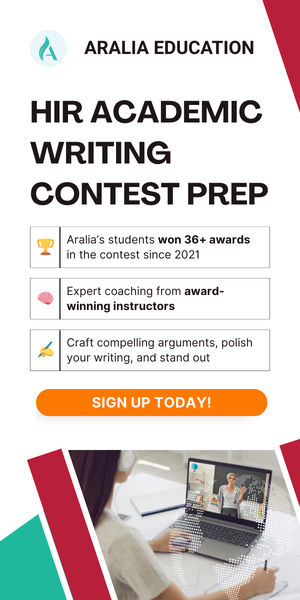1. What Is The Research Science Institute?
The Research Science Institute was founded by the Center for Excellence in Education (CEE), a nonprofit dedicated to nurturing high school and university students to a career in STEM. In addition to the Research Science Institute, this nonprofit sponsors well-known student programs such as the USA Biolympiad (USABO) and STEM Lyceums.
The Research Science Institute (RSI) is a prestigious summer program held at the Massachusetts Institute of Technology (MIT) for 100 select high school students. Participants engage in the entire research process, including reviewing current literature, developing research plans, and presenting their findings through written and oral reports. RSI includes a week of intensive STEM classes with professors, followed by a five-week research internship where students work on individual projects under the guidance of experienced mentors. The program culminates in research presentations on the findings and process of their projects.
2. What Are The Benefits of Attending RSI?
Beyond the immediate academic opportunities, RSI opens doors to long-term success. Alumni of RSI have gone on to achieve remarkable accomplishments in STEM fields, many receiving scholarships, awards, and admissions to prestigious universities. The program also fosters a strong alumni network, creating lifelong connections with peers and mentors. Additionally, students develop crucial skills such as critical thinking, problem-solving, and effective communication—skills that are essential for future STEM leaders.
3. How Much Does Research Science Institute Cost?
RSI is cost-free for students to attend. Students will participate in the entire research cycle, take STEM classes and conduct research with accomplished professors.
4. Research Science Institute Dates
Program Deadline: Applications for RSI 2025 close on early December 11, 2024
Program Dates: June 22 to August 2, 2025
When do RSI decisions come out?
Since the program doesn’t offer rolling admission, all students are informed of their status in March.
5. What Is RSI Acceptance Rate?
The Research Science Institute (RSI) is a highly competitive summer program that receives approximately 3,000 applications each year. From this large pool of applicants, only 100 students are selected for the program, resulting in an acceptance rate of about 3.3%. This level of selectivity is comparable to the admission rate for undergraduate students at MIT, highlighting the rigorous nature of the program.
According to the MIT Mathematics Department, the applicant pool for RSI is diverse, with approximately one-third of the participants coming from abroad and the remaining two-thirds from the United States. This international representation adds to the program’s global perspective and fosters a rich cultural exchange among the participants.
The high number of applicants and the limited spots available make RSI a highly sought-after opportunity for high school students interested in science and engineering. The program’s reputation, coupled with its association with MIT, attracts top talent from around the world who are eager to engage in intensive scientific coursework and research experiences.
6. What’s the Application Requirements?
The application is pretty straightforward, as the application only accepts high school juniors (typically students apply in the middle of junior year). High school seniors are not eligible to apply.
Depending on whether you’re a U.S. Citizens/Permanent Residents or an International Applicant, you will have a different application process:
- U.S. Citizens and Permanent Residents: Your application will be submitted directly to CEE.
- International Applicants: Each participating country will have a different selection procedure and selection schedule. Students should contact Ms. Maite Ballestero, Executive Vice President of Programs to determine if your country participates.
After deciding your eligibility and application category, students will have to submit:
- Official high school transcript.
- 2 letters of recommendation (Math/Science or a research supervisor), with a maximum of 3 letters of recommendation to be submitted
- Standardized test scores: PSAT, SAT, ACT, and AP Exams
- Essay responses to the questions in the application
- Research Preferences: Please choose your first and second research fields.
- Applicant Personal Statements: Why did you choose the above research fields? What are your long-term goals? What activities and/or hobbies demonstrate your leadership, creativity, and uniqueness? Describe your participation in extracurricular or community outreach activities. How did you hear about RSI? Why are you applying to RSI? And, what aspects most appeal to you?
- Coursework: STEM coursework experience, Computer Skills, Additional STEM courses, and any other information regarding your academic performance that might be relevant
- Awards and Accomplishments: Science Fairs, Competitions, or Programs; STEM Olympiad Distinctions. Please list (concisely) other major awards, activities, and accomplishments in science, technology, engineering, or mathematics. Please list (concisely) the applicant’s most important non-STEM awards, activities, and accomplishments. Please list any previous STEM research; and Publications.
7. How to Get Into the Research Science Institute?
The Research Science Institute (RSI) application process requires students to demonstrate excellence in three areas: grades, research, and essays. While a stellar GPA is undoubtedly advantageous, having a lower GPA than some applicants does not necessarily preclude acceptance. RSI recognizes that academic achievements extend beyond just GPA. If your GPA doesn’t stand out, take the opportunity to highlight your commitment to academic rigor by showcasing challenging coursework and demonstrating competence in these challenging classes. Showcase your ability to excel in the face of intellectual challenges, illustrating how you’ve engaged with difficult subjects and emerged as a competent learner. The admissions committee values a holistic understanding of an applicant’s academic journey, and a lower GPA can be compensated for by emphasizing your dedication to intellectual growth.
Grades: For standardized scores, the program recommends that students should have PSAT Math Scores be at least 740 or higher, and Evidence-Based Reading and Writing Scores be 700 or higher. ACT math scores should be at least 33, and verbal scores at least 34. However, even if your scores fall slightly below these thresholds, the emphasis should shift to showcasing your potential through other indicators. Strong recommendations, a compelling research portfolio, and active participation in science-related extracurricular activities can provide a comprehensive picture of your capabilities.
Research Components: Regarding the research component of the Research Science Institute (RSI) application, diversity in your research experiences can undoubtedly be beneficial, showcasing a well-rounded and versatile scientific background. However, it’s equally important to recognize the power of finding a specific focus within your research endeavors. Instead of scattering your efforts across a broad range of topics, identifying a niche or a particular area of interest can enhance the depth and impact of your application. In addition, don’t be afraid to advocate for yourself when writing down your research achievements. They are a testament to your passion for STEM and your capacity to make a meaningful impact. Whether you’ve won science fairs, participated in STEM competitions, or engaged in impactful extracurricular activities, these accomplishments add layers to your application, making you a standout candidate.
Essays: When answering questions in the essay section, be genuine and authentic in your responses, and if applicable, discuss how your experiences, challenges, or setbacks have contributed to your personal growth and how they will impact your research journey at RSI. Ensure that your responses align with the values and goals of RSI. Tailor your answers to reflect how your participation in the program aligns with your academic and career aspirations.

In addition to the tips above, students who attended RSI in 2022 – Rishab Jain and Elizabeth Nyamwange – have also posted videos sharing their anecdotes of applying to RSI and getting accepted into the program. Here are some tips they want to leave you with:
- Start your application as early as possible. The earlier you start, the more time you’ll have to perfect your essays, get strong recommendations, and add new experiences. I started my RSI application in December and submitted it in early February.
- Get strong recommendations. When selecting recommenders, prioritize those who can speak to your academic prowess and your potential as a researcher. Ensure that their letters provide a comprehensive view of your capabilities, emphasizing your research work, initiatives, and contributions.
- Thoroughly review and edit! Before submitting your application, carefully proofread it multiple times, either on your own or with a family member or a teacher.
Some other helpful tips that we believe that students should know:
- Participate in more STEM competitions and research projects: Look for local, national, or even international competitions that cater to your specific interests within STEM. We have provided a list of 11 STEM Competitions for High School Students to help you get started. Winning or even participating in such events can set you apart from other applicants and provide tangible evidence of your dedication and skills. If you’re not ready for competitions at the moment, there are also 7 STEM activities that will get you familiar with the field and start building up your experience.
- Express your interest in collaborative research experiences: Don’t be afraid to share stories of your involvement in group projects, team efforts, or mentorship opportunities. Research is a collaborative journey, so it’s important to showcase your ability to work effectively in a research team, underscoring the collaborative spirit that is a hallmark of the RSI experience.
8. How to Strengthen Your Application?
Research Science Institute is a competitive and rigorous summer program for high-achieving and ambitious students. Students should show interest and dedication to research throughout the application process to stand out. One effective essay structure that many successful applicants use involves presenting a clear, cohesive narrative that highlights the evolution of your interests and their impact on your future aspirations.
Tip: Structure your essay around the following framework to create a compelling story:
- Express Interest: Begin by illustrating the moment or experience that sparked your interest in a specific STEM area. This could be a formative experience, a challenging problem you encountered, or a question that ignited your curiosity.
- Action Taken: Discuss the steps you took to explore and deepen your understanding of this interest. This could include specific research projects, academic pursuits, extracurricular activities, or independent learning initiatives. Highlight any tangible achievements or growth during this phase.
- Future Implications: Conclude by explaining how this journey has shaped your academic goals and future plans. Connect your experiences to your aspirations, demonstrating how RSI is the next step in your pursuit of meaningful contributions to the field.
This narrative approach allows you to present a holistic view of your intellectual growth and demonstrate a clear trajectory of curiosity, action, and ambition—qualities that align with the mission of RSI.
8. Elevate Your Research Journey with Aralia
If you’re interested in building your research experience to participate in the Research Science Institute in the future, consider participating in the Aralia Research Program, a valuable opportunity to conduct research with award-winning high school teachers and college professors!











